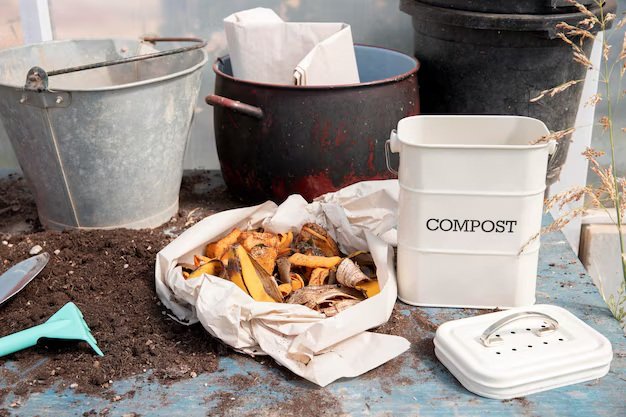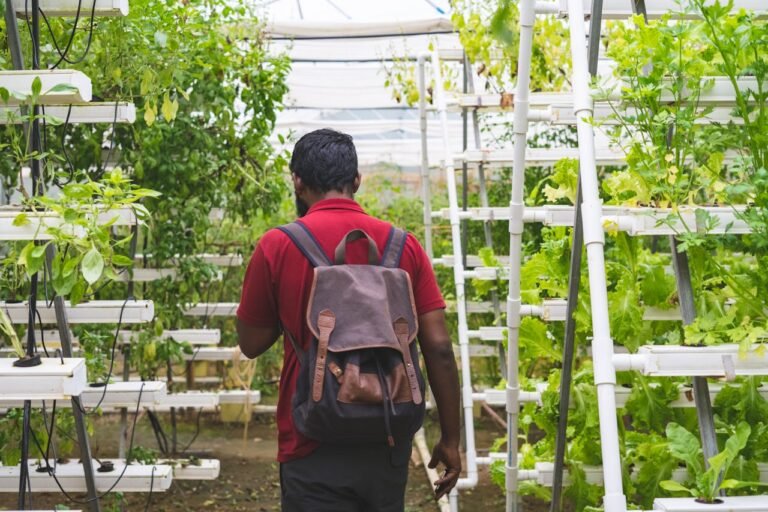What Is Eco-Friendly Pest Management?
Pest control is undergoing a profound transformation. Across farms, cities, and homes, eco‑friendly approaches are taking the lead, replacing traditional chemical-based methods. These strategies are proving to be effective, sustainable, and safer for both people and ecosystems. They rely on concepts such as integrated pest management (IPM), biological controls, plant-based biopesticides, cultural practices, and emerging technologies like nanotechnology and IoT-based smart traps.
Integrated pest management is a holistic framework. It emphasises prevention, monitoring, and the use of minimal chemicals only when necessary. Instead of blanket spraying, IPM focuses on understanding pest life cycles, detecting them early through regular inspections, and choosing interventions—like habitat manipulation, resistant varieties, or selective biocides—when thresholds are exceeded. Recent studies show that in apple orchards in Nova Scotia, IPM reduced pest control costs by 25% over a decade compared to conventional methods. Similarly, a global analysis found that IPM adopters achieved a benefit–cost ratio of approximately 8 to 1, along with ecological benefits.
In developing countries, botanical nanoformulations—tiny delivery vehicles carrying plant-derived insecticidal compounds—are emerging as potent tools. These nanoparticles enhance stability, targeted release, and environmental safety. Trials in cotton farming indicate they can perform comparably to chemical pesticides, while reducing collateral damage. The same nanotechnology trend appears in agricultural formulations involving neem oil, chitosan carriers, and zinc oxide nanoparticles to control fungi and insects more precisely.
Push–pull systems, especially in East Africa, elegantly apply ecological principles. Intercropping maize with repellent plants (“push”) and border trap plants (“pull”) has raised maize yields by about 62%, lifted smallholder profits, and unlocked broader socio-economic improvements. Widely adopted by over 68,000 farmers, these systems continue strengthening food security and environmental health.
The gains are significant. An IPM‑based case study in Asia reduced pesticide volume by over 50%, cut pest damage by nearly 30%, boosted yields by more than 20%, and greatly improved biodiversity on farms. Meanwhile, carbon footprint studies show eco‑friendly approaches can cut greenhouse gas emissions by 70%, saving nearly 2 metric tons of CO₂ per acre in mushroom production.

In This Article
- Real‑World Success Stories
- Innovation & Science Advancing Eco‑Friendly Pest Control
- Challenges & Lessons Learned
- Practical Advice to Go Eco‑Friendly
- Conclusion
Real‑World Success Stories
The story of cotton farmers in developing countries illustrates the frontier of eco‑friendly methods. Scientists have engineered nanoformulations from neem, azadirachtin, and metal nanoparticles. These formulations improved target pest toxicity while preserving soil life and beneficial insects. Although most trials remain small-scale and experimental, the momentum is obvious—such technologies are now field-ready in many contexts.
A striking example comes from Marsden Farm in Iowa, USA, where scientists at Iowa State University tested eco-friendly practices over an eight-year period. Instead of short corn-soybean cycles, they rotated maize with oats, alfalfa, and red clover, introducing natural breaks in pest and weed lifecycles. Fertiliser and pesticide use was reduced by more than 85%, while soil health and biodiversity flourished. The method also preserved beneficial insects like lady beetles and ground beetles and encouraged bird activity. Even more impressive? Crop yields and profitability remained competitive with conventional farms, proving that nature-based systems can support both productivity and sustainability.
Consider the U.S. Boll Weevil Eradication Program—a landmark in pest control. Since the 1970s, cotton farmers have phased out insecticides under a coordinated eradication program. Today, pesticide use is down by up to 100% in some regions, with yields up by at least 10%. Declines in chemical treatments allowed beneficial insects and birds to recover, highlighting an ecological restoration alongside economic gain.
Urban gardens, too, embrace eco‑friendly pest control. Flower and vegetable growers now encourage beneficial insects by planting companion species like lavender, thyme, and sweet alyssum. Floating row covers, horticultural oils, and precise bacterial agents like Bacillus thuringiensis kurstaki maintain plant health without harming pollinators.
Learn More: 15 Best Eco-Friendly Insect Control Methods Backed by Studies
Innovation & Science Advancing Eco‑Friendly Pest Control
Several scientific breakthroughs are shaping the future of eco‑friendly pest strategies. Nanotechnology—with nano‑encapsulated essential oils, polymers, and metal nanoparticles—allows slow, targeted release and reduces environmental dispersion. For instance, neem‑oil chitosan nanocarriers increase pest mortality while preserving damp, beneficial conditions.
Biopesticides derived from microbes, essential oils, and pheromones are gaining traction. They offer specificity and biodegradability, making them safer on non‑target species.. The development of RNAi‑based pesticides opens potential for shutting down critical genes in pests with minimal collateral damage.
Emerging generative AI platforms, such as the Pesti‑Gen model, are being trained to design new pesticide molecules optimised for low toxicity to livestock and aquatic life—68% of its outputs were deemed structurally valid in initial trials. These tools may revolutionise green chemistry in pest control.
Technology is also entering the field—literally. Pilot projects using IoT‑enabled smart traps with cameras and AI create real‑time pest detection and automated capture, offering pesticide-free control, particularly in coffee farms.
Biosolarization is gaining attention as a non‑chemical method for high-value crops like strawberries, combining solar heat and organic amendments to sterilise soil and control pathogens cost‑effectively.

Challenges & Lessons Learned
Transitioning from chemical pesticides to eco‑friendly pest management isn’t without challenges. The main barriers include cost, regulatory complexity, awareness, and technical know‑how.
Nano‑formulations often require advanced production facilities, making them expensive and difficult to scale in resource‑poor regions. Regulations lag behind innovation: many countries lack frameworks to evaluate nanopesticides or RNAi agents, delaying approvals.
Adoption depends on education. Farmers need training to monitor pests, use thresholds in IPM, and understand when and how to deploy eco‑strategies. Programs blending peer‑learning and expert workshops—as seen in Bhandara, India—have successfully improved adoption of natural farming techniques and reduced synthetic pesticide input.
Urban and home gardeners benefit from outreach on simple practices—like pruning, soil health, and attracting predatory insects—that reduce both pest outbreaks and dependence on poisons.
Nevertheless, when implemented properly, eco‑friendly pest management delivers clear returns. According to a 2024 study, global IPM programs have driven $500 million in net present value with an 8:1 return on investment.
In recent decades, knowledge-sharing across farmers, scientists, NGOs, and governments has accelerated the shift. Certification programs, like “Healthy Grown” potatoes in Wisconsin, reward growers who implement IPM and biodiversity conservation.
Success is most visible where stakeholder participation is high. IPM adoption thrives where farmers are empowered, informed, and supported by functional extension services, local marketplaces, and appropriate incentives. Push–pull strategies grew because of seed distribution, field days, and economic opportunity. Regional programs in apple orchards, cotton, and rice fields reflect the power of collective learning.
Practical Advice to Go Eco‑Friendly
Eco‑friendly pest management is no longer optional—it’s essential for sustainable food systems and resilient communities. It protects farms, health, and the environment. Here’s how you can start:
Firstly, assess your pest problem thoroughly. Whether it’s in a garden or a farm, begin by monitoring pest presence and the health of beneficial insects. Record observations, identify pests correctly, and learn their seasonal behaviour patterns.
Next, embrace IPM principles. Incorporate crop rotation, resistant varieties, and habitat management. Implement thresholds—action only when pest levels threaten yield—and consider introducing natural controls like predators, parasitic wasps, or microbial agents like Bacillus thuringiensis.
Experiment with plant-based biopesticides. Neem oil, essential oils, or botanical extracts can be effective alternatives. For larger farms, explore the potential of nanoformulations or pheromone dispensers to target specific pests more efficiently.
For community or smallholder farmers, consider ecological strategies like push–pull intercropping or biosolarization—methods that boost yields and restore soil health without chemical input. Join extension programs and farmer networks to share experiences and access resources.
Integrate technology smartly. IoT‑enabled traps or smartphone‑based pest diagnostics are becoming accessible. They enhance precision and prevent unnecessary pesticide use.
Lastly, track your progress. Whether tracking pesticide reduction, yield change, biodiversity gains, or profit, quantitative insights help guide decisions and attract support from consumers, NGOs, or certification bodies.
Learn More: What’s Eating My Plant Leaves? Identify Pests & Fix Damage Naturally
Conclusion
Eco‑friendly pest management is a decisive step toward a greener, healthier future. With demonstrated success across scales—from backyard gardens to global crop systems—these approaches safeguard yields, economies, and biodiversity. They reconcile productivity with ecological harmony, a necessity in an era of climate change and environmental scrutiny.
As a grower, gardener, or decision‑maker, your choices make a difference. By monitoring pests, embracing integrated strategies, incorporating nature‑based solutions, and staying open to innovation, you can help build resilient food systems and protect the world we share.
The science is clear. The stories are inspiring. The impact is real. Now is the time to go eco‑friendly—and reap both harvest and ecological reward.







